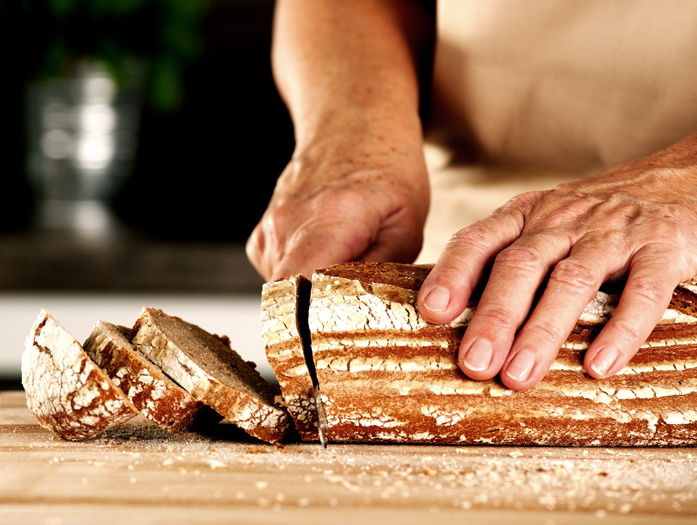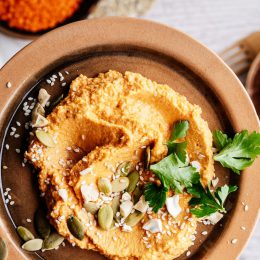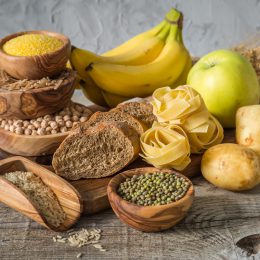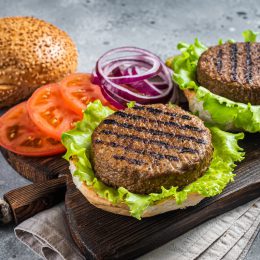4 Best Carbs for Weight Loss
Yes, carbohydrates can help you reach your weight loss goals—as long as you choose them wisely. Add these to your grocery list.

Carbs make you fat.
It must be true. Every story about “how to lose weight fast” says so. And with all the trendy low-carb diets—from Atkins to paleo to keto—they’ve got to be bad, right? Not exactly.
Carbohydrates are incredibly important to your health. In fact, as your body’s main source of energy, they’re an essential part of an overall healthy diet. And when you eat the right kind of carbs (more on that later), they can actually help you achieve and maintain a healthy weight.
“In my experience, many people look, feel, and perform better when they increase their carb intake,” says Caroline Juster, C.P.T., an elite trainer at Fitness Formula Clubs Union Station in Chicago. “My clients often find they have more energy throughout the day, and they can train harder during their workouts.”
Research backs it up. A 2018 study in Nutrients found overweight people who increased their intake of both carbohydrates and fiber from whole, complex sources, lost weight and improved body composition.
“A lot of fad diets focus on making carbs the bad guy, but it’s important to know that all of the macronutrients—carbs, protein, and fat—play an important role in a healthy diet,” says Tara Gidus Collingwood, R.D.N.
The key is knowing how much you’re eating overall and which foods within each macronutrient category will help you reach your goals, she says.
An easy way to make sure you’re getting enough but not too many carbs is to check portions using your hand. One serving of carbohydrates is about one cupped handful, Gidus Collingwood says.
Most women need one serving at each meal, while men need closer to two. Of course, the exact amount of carbs you need every day depends on your body and goals. You can also talk to your doctor or a registered dietitian for guidance, especially if you have a chronic condition like heart disease or diabetes.
As for what kind of carbs to eat, the less processed, the better. Limit crave-inducing carbs that are high in sugar and low in fiber, like candy, cookies, crackers, and chips. Instead, turn to these nutrient-rich options for superior weight loss and health.
Healthy Carb #1: Whole Grains
Grains come in two varieties: whole and refined. Whole grains are those that come packaged largely as nature designed. They contain all of their original parts, including the bran, germ, and endosperm.
This means the grain is packed with fiber, antioxidants, B vitamins, and even some protein and healthy fats, Gidus Collingwood says.
“All of these nutrients are linked to better health and body composition,” she says.
Refined grains, however, do not contain at least one of these three parts. Generally, the refining process removes the bran and germ—along with the bulk of the grain’s nutrients. Fiber, in particular, helps the digestive system work well.
That may help explain why a 2017 study in the American Journal of Clinical Nutrition found your body uses up more calories for basic functions when you consume whole grains in place of refined ones.
To find whole grains, don’t just read the front of the package. Look for the word “whole” on the ingredients label, Gidus Collingwood says. Examples of whole grains include:
- Whole wheat bread
- Whole grain pasta
- Oats
- Barley
- Brown rice
- Quinoa
And remember to always keep portions in check. If you consume more calories than your body needs every day—whether or not carbohydrates are involved—you can gain weight.
Healthy Carb #2: Fruit
Fruit is packed with a type of natural sugar called fructose, which can make anyone who’s heard of high fructose corn syrup cringe. But they’re different: High fructose corn syrup is an added sugar that’s used in sodas and processed foods. It adds calories but doesn’t add any nutrients.
Research actually shows fruit reduces excess weight and promotes healthier body compositions, according to one comprehensive Nutrients review.
This is likely because even if bananas and candy both have sugar, bananas still have a lot less, Gidus Collingwood explains. For example, a medium banana has 14 grams of natural sugar, but a regular bag (2.17 ounces) of Skittles has 46 grams of added sugar.
Plus, the banana comes with vitamins and minerals, as well as fiber that helps stabilize blood sugar, Gidus Collingwood says.
“I recommend everyone get at least a couple servings of fruit every day,” says Juster, who chooses fruit as an energizing pre-workout snack.
If you’re concerned about blood sugar—or just want to stock up on lower-carb fruits—great options include strawberries, peaches, pears, apricots, and kiwi. All are low in carbohydrates and sugar, and they also contain soluble fiber, which slows the absorption of sugar into the bloodstream so you avoid spikes.
Subscribe to our newsletter
It's quick and easy. You could be one of the 13 million people who are eligible.
Already a member? Click to discover our 15,000+ participating locations.
Follow Us
Healthy Carb #3: Pulses
Beans, peas, and lentils—part of a group of foods called pulses—are not only rich in complex carbohydrates like fiber, but they’re also a great source of protein. Together, fiber and protein help you feel fuller longer to prevent blood sugar crashes and overeating, Gidus Collingwood says.
A 2016 analysis found people who added a single serving of pulses to their daily meal plan lost an average of 0.75 pounds over the course of six weeks—without even trying to change anything else. It’s subtraction by addition!
Stock your pantry with:
- Lentils
- Beans
- Peas
- Chickpeas
Plus, check out these delicious pulse-based recipes:
- Savory Mashed Chickpea Scramble
- Baked Chickpea Cakes Over Sesame Mixed Greens
- White Bean and Kale Soup
Healthy Carb #4: Dairy
“A lot of people don’t think of dairy as a carb, but both milk and yogurt are great sources of whole carbohydrates,” Gidus Collingwood says. And, yes, research suggests they can help you lose weight.
Case in point: An International Journal of Obesity review of 12 studies found people who increased their dairy intake while also cutting back on total calories lost about 1.6 more pounds from fat than people who stuck to low-dairy diets. It also found eating or drinking more dairy without scaling back on total calories doesn’t help with weight loss.
What that means: You can’t rely on dairy alone to lose weight—but you also don’t have to cut out dairy when you’re trying to slim down.
And you may not want to. Milk and yogurt are rich in calcium and protein, as well as vitamins B6, B12, and D, Gidus Collingwood says.
If you’re turned off by dairy for any reason, be sure to include nondairy sources of calcium in your diet, such as broccoli, canned sardines with soft bones, or calcium-fortified cereals.
Take Your Favorite SilverSneakers Classes Online!
SilverSneakers members can access live fitness classes and wellness workshops through SilverSneakers LIVE. See the latest schedule and RSVP for classes here.
Not a member? If you have a Medicare Plan, it may include SilverSneakers—at no additional cost. Check your eligibility instantly here.





